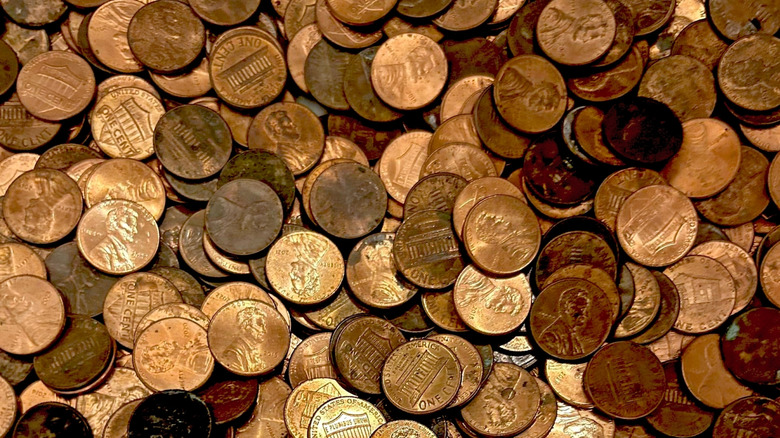Why Cash-Paying Customers At McDonald's Might Soon Be Paying More (Or Less) For Their Meals
You've likely noticed a small credit card fee tacked on the end of some receipts, particularly at local restaurants and mom-and-pop shops. Businesses have to pay processing fees, so credit card transactions come at a cost. Major chains, meanwhile, prefer card payments. But now, a nationwide penny shortage (caused by the fact the government will no longer be minting pennies) is making it harder for businesses to navigate cash payments, and it's affecting small businesses and major chains alike. On October 31, McDonald's announced that cash payments would now come with an upcharge — or not, depending.
No, McDonald's isn't changing its menu prices again. According to the chain's new policy, some McDonald's locations will now round cash payments up or down to the nearest five cents. The policy won't impact most customers. These days, the majority of transactions are made with credit cards or other cashless payments. Locations that aren't feeling the penny pinch will keep giving customers exact change.
Laws on cash payments vary from state to state, making it hard for nationwide chains to implement one-and-done policies. Some states have laws to prevent retailers from charging more than the stated price, so some McDonald's locations may require customers to provide exact change or pay by card. Other states require businesses to accept cash. "We have a team actively working on long-term solutions to keep things simple and fair for customers," McDonald's said in a statement.
What's the deal with the penny shortage — and will it extend to other businesses?
In February 2025, President Donald Trump announced that the United States would start phasing out penny production. The change has been a long time coming: It costs the federal government four cents to produce a single penny. Historically, banks and businesses haven't been big fans of pennies, either. But the federal government hasn't issued much guidance for businesses, leaving retailers in the dark. "We have been advocating abolition of the penny for 30 years. But this is not the way we wanted it to go," said Jeff Lenard, a representative of the National Association of Convenience Stores. McDonald's is still waiting for information from the feds, too. "We will continue to work with the federal government to obtain guidance on this matter going forward," the chain explained.
McDonald's isn't the only retailer to implement penny policies. Kwik Trip, a Midwestern convenience store chain, has started rounding down purchases. Another chain, Sheetz, recently ran a promotion to help with the problem: Customers in select stores could exchange 100 pennies for a free soda and a dollar bill. Kroger is accepting cash payments as usual, but released a statement asking customers "to consider providing exact change." So remember to raid your piggy bank before making cash purchases — at least until the federal government steps in.

